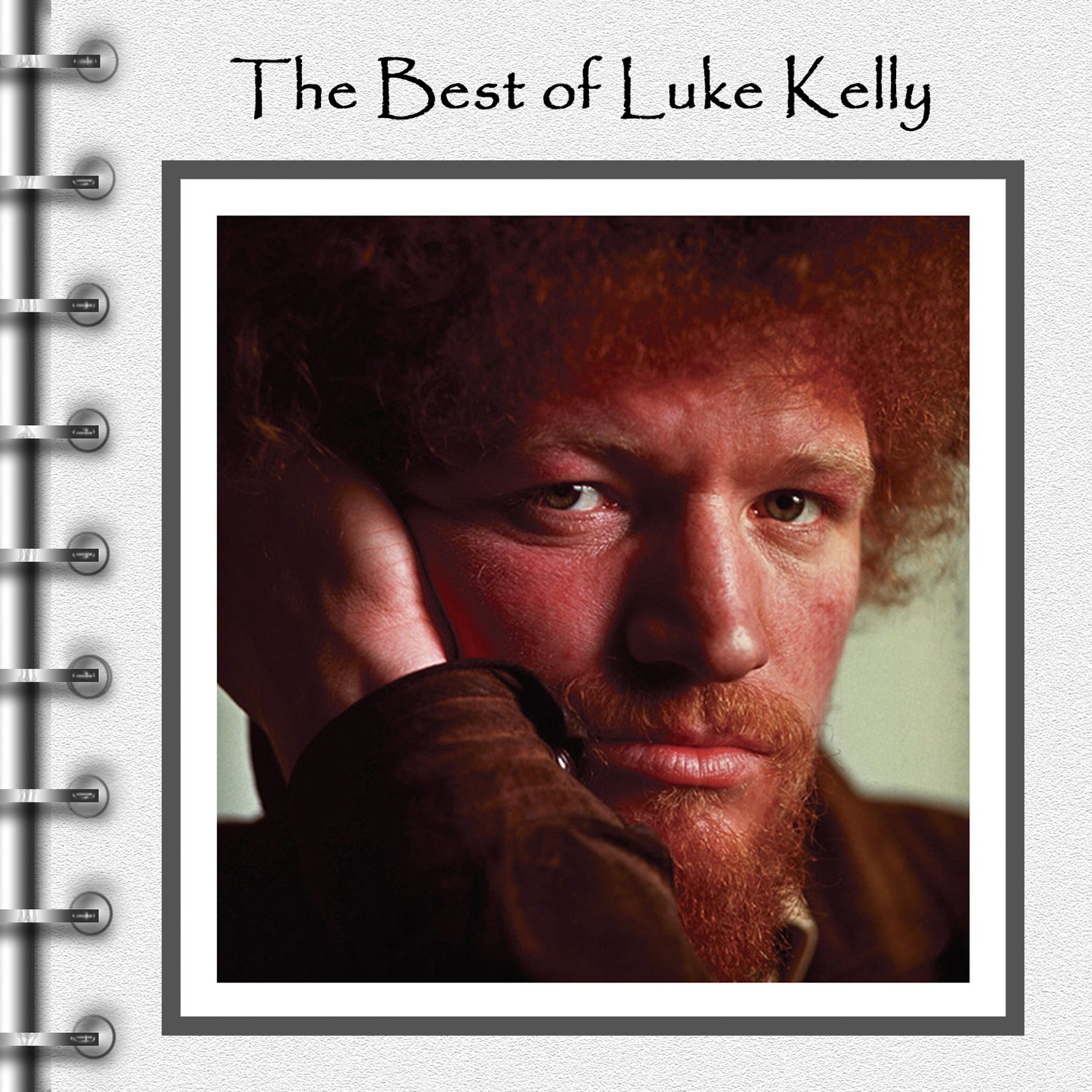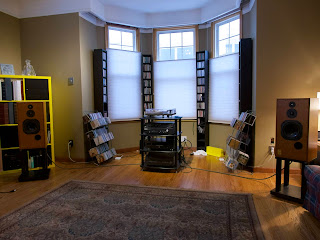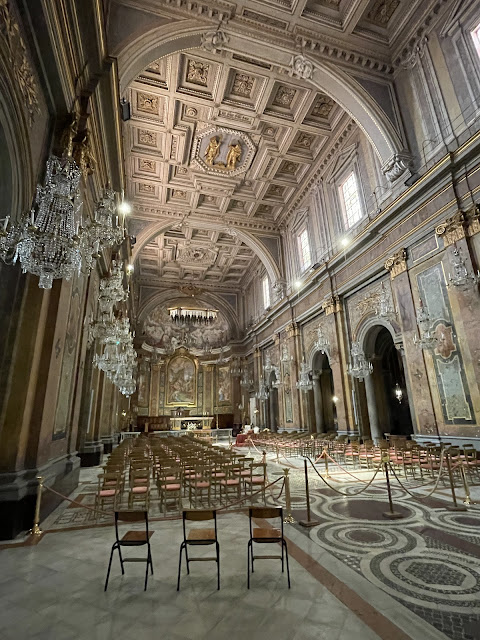Music & Society
As I continue to imbibe some of the music that I brought back from Ireland, I am finding out a little more of what lies below the surface. Our Lord was very clear that we will be surprised by who we may find in the Kingdom of Heaven. As much as it might seem contradictory, poets often have a knack for showing us the reality of a situation as well as a message about how we might more profitably shape our future.
We would do well to remember that many people among us contend with great challenges to cope with meeting their very basic needs. It is not a bit of wonder that people hunger for circumstances that will allow them to thrive. We owe a debt to each to help one another to focus these aspirations in a way that leads to human and spiritual thriving. Nonetheless when these aspirations are expressed with some scattershot it is far better than not expressing them at all.
One of the more interesting and stark examples of this I found in this Luke Kelly album. In what is an outwardly rather bawdy song lies a rather articulate political commentary.
Part of the story of the history that brought Ireland to independence was a stratification of circumstances and aspirations. Working people, in particular, acutely felt that they experienced little benefit from the movement toward reform.
Monto was a district in Dublin in the environs of Montgomery Street known as a red light district. The song, while full innuendo and suggestion is really a cutting commentary on politics of the early 20th century.
The song was actually written in 1958 long after the district had been cleaned up, and it appears to have been written with some irony about the politically earnest but serious ballads that were thick on the ground in Ireland at the time. Nonetheless its popularity is not solely based on the fact that it is a rather raw bar room song, but that it captures the sting working people often feel at the pomp and circumstance of activities of state.
The presence of the British military had obvious negative consequences for the local citizenry and the sense of entitlement that military personnel felt was itself often unjust. The visit of Queen Victoria in 1900 is cited to emphasize the divide within Irish society. While there were many abjectly poor people in Dublin, the sanitized picture of Dublin shown to the Queen during the visit and the imperial political message the visit was intended to convey had an answer! Instead of taking her around to state occasions she should be taken up to Monto where she would be exposed to a different assessment of life.
The visit of the King of Prussia and Tsar of Russia referred to in the song was part of an effort to cement a British, Prussian and Russian political alliance -- something that would quite possibly result in more Irish citizens becoming cannon fodder in foreign conflicts that bore no benefit for Ireland. Again the answer is simple. Take them up to Monto!
In a way the song makes clear the impotence that poor people feel in oppressed conditions. And the story of Irish independence is that it did not come free of cost. Many lives were lost and it took a long time for Britain to come to terms with the prospect of an independent Ireland.
By 1958, the original aspirations were largely in the rear view mirror. There was a sense that what had been gained could be lost and there was a real need for a vision of a more modern Irish state. The song also reminds, however, that there are still many who are left behind and who need to be able to grasp onto real prospects of hope.
A danger that exists in our present day is that we live now in an interconnected world where we are more aware of the world's needs and at the same time distanced from it. We still have a default setting to look out for #1. The harshness of songs like this famous one sung by Luke Kelly remind us of the plight still present in many places around the world.
We would do well to remember that many people among us contend with great challenges to cope with meeting their very basic needs. It is not a bit of wonder that people hunger for circumstances that will allow them to thrive. We owe a debt to each to help one another to focus these aspirations in a way that leads to human and spiritual thriving. Nonetheless when these aspirations are expressed with some scattershot it is far better than not expressing them at all.
One of the more interesting and stark examples of this I found in this Luke Kelly album. In what is an outwardly rather bawdy song lies a rather articulate political commentary.
Part of the story of the history that brought Ireland to independence was a stratification of circumstances and aspirations. Working people, in particular, acutely felt that they experienced little benefit from the movement toward reform.
Monto was a district in Dublin in the environs of Montgomery Street known as a red light district. The song, while full innuendo and suggestion is really a cutting commentary on politics of the early 20th century.
The song was actually written in 1958 long after the district had been cleaned up, and it appears to have been written with some irony about the politically earnest but serious ballads that were thick on the ground in Ireland at the time. Nonetheless its popularity is not solely based on the fact that it is a rather raw bar room song, but that it captures the sting working people often feel at the pomp and circumstance of activities of state.
The presence of the British military had obvious negative consequences for the local citizenry and the sense of entitlement that military personnel felt was itself often unjust. The visit of Queen Victoria in 1900 is cited to emphasize the divide within Irish society. While there were many abjectly poor people in Dublin, the sanitized picture of Dublin shown to the Queen during the visit and the imperial political message the visit was intended to convey had an answer! Instead of taking her around to state occasions she should be taken up to Monto where she would be exposed to a different assessment of life.
The visit of the King of Prussia and Tsar of Russia referred to in the song was part of an effort to cement a British, Prussian and Russian political alliance -- something that would quite possibly result in more Irish citizens becoming cannon fodder in foreign conflicts that bore no benefit for Ireland. Again the answer is simple. Take them up to Monto!
In a way the song makes clear the impotence that poor people feel in oppressed conditions. And the story of Irish independence is that it did not come free of cost. Many lives were lost and it took a long time for Britain to come to terms with the prospect of an independent Ireland.
By 1958, the original aspirations were largely in the rear view mirror. There was a sense that what had been gained could be lost and there was a real need for a vision of a more modern Irish state. The song also reminds, however, that there are still many who are left behind and who need to be able to grasp onto real prospects of hope.
A danger that exists in our present day is that we live now in an interconnected world where we are more aware of the world's needs and at the same time distanced from it. We still have a default setting to look out for #1. The harshness of songs like this famous one sung by Luke Kelly remind us of the plight still present in many places around the world.


